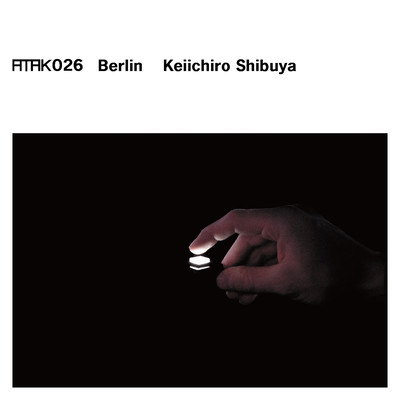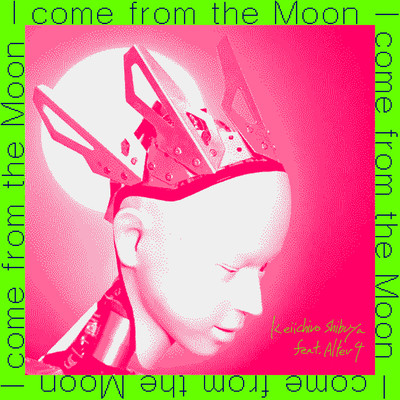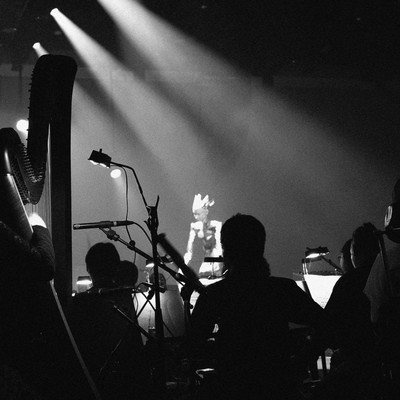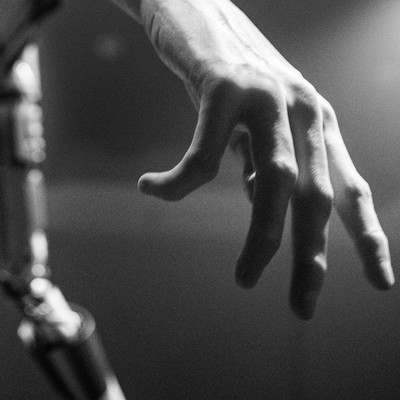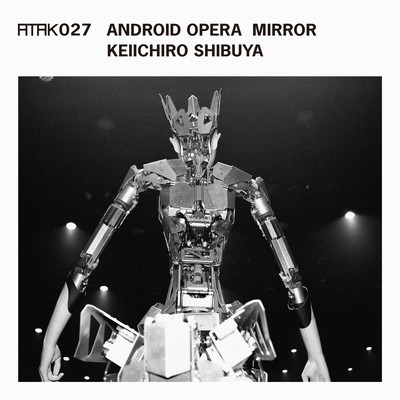

Pain is a vital part of our lives
And part of developing a special set of senses
A perfect way to treat pain
As a whole is by doing what we love to do and find our true self
But for some, pain cannot be considered as a source of discovery
Since it can just complicate matters going forward
The world you have once loved is no longer yours
But that is the very song that haunts him night and noon
Let him will! In the midst of
His madness, his voice rises above
The noise of the sea and the storm
It is the song he sung for her in Galle
How long a time has passed since that summer afternoon and sunset, and his voice
That not happened on better ears
Than those of the voyageur
Pain is a vital part of our lives
A perfect way to treat pain and find our true self
The world you have once loved is no longer yours
BORDERLINE
- Lyricist
GPT
- Composer
Keiichiro Shibuya
- Producer
Keiichiro Shibuya
- Recording Engineer
Francois Baurin
- Mixing Engineer
Francois Baurin
- Mastering Engineer
Rashad Becker
- Vocals
Alter4
- Piano
Keiichiro Shibuya

Listen to BORDERLINE by Keiichiro Shibuya
Streaming / Download
- 1
MIRROR
Keiichiro Shibuya
- 2
Scary Beauty
Keiichiro Shibuya
- ⚫︎
BORDERLINE
Keiichiro Shibuya
- 4
On Certainty
Keiichiro Shibuya
- 5
The Decay of the Angel
Keiichiro Shibuya
- 6
Midnight Swan (Android Opera ver.)
Keiichiro Shibuya
- 7
I Come from the Moon (Android Opera ver.)
Keiichiro Shibuya
- 8
Lust
Keiichiro Shibuya
- 9
Scary Beauty (Vocal and Piano ver.)
Keiichiro Shibuya
ATAK027 ANDROID OPERA MIRROR is the first audio work of Keiichiro Shibuya's android opera. This groundbreaking theatrical piece places an android at the centre of the stage as a symbol of technology, performing alongside a human orchestra. As a post-humanistic work, it has been performed worldwide at the Dubai Expo (2022), Théâtre du Châtelet in Paris (2023), and Tokyo (2024), etc.
"I Am the Only Human"
text by Keiichiro Shibuya
Western music has always been human-centric.
By "Western music," I mean everything from classical music and opera, which originated in Europe, to pop music and hip-hop. The paradigm of exceptional singers, conductors, musicians, pop stars, or rappers reigning at the centre of the stage, telling stories of human life, sexuality, love, and death while thrilling audiences, has remained unchanged for centuries.
However, human society, especially since the 21st century, has exposed its many limitations, and the speed at which we seem to be heading toward an end is accelerating.
In this context, rather than clinging to human-centric narratives, exploring other possibilities feels more meaningful, envisioning a world beyond humanity. Such imaginings might offer insights or even a prescription for navigating this world hurtling toward its end.
The world is perpetually moving toward an end. Android Opera is a work where an AI-equipped android, leading a human orchestra, sings about variations of the end and the world that comes after.
Even if the world ends, wouldn't it be enough if the process and the following world are beautiful? Inspired by this thought, the android, capable of endless evolution, sings alongside humans about the end and what comes after. Most of the lyrics are generated by GPT, interspersed with fragments from the works of Michel Houellebecq and Ludwig Wittgenstein.
When it came time to release the album, I initially attempted using a live recording with an orchestra. However, I was dissatisfied with the result. The synthetic, artificial voice of the android vocals felt incomplete and unconvincing alongside the live human orchestra; it did not fully achieve the simulation of the end.
After extensive experimentation, I replaced all the orchestra parts with software. Today's orchestral simulation software has reached an extraordinarily high level. In fact, it's rare for anyone to distinguish it from a live orchestra by ear alone.
The android vocals are created by layering multiple voices, aiming to achieve a richness of information equal to human vocals yet devoid of human-like emotion, a romanticism entirely distinct from humans.
The piano parts, however, are performed entirely by me, the composer. This is the only real, physical element within the music. If the idea of "I am the only human" represents the ultimate extreme of confronting the end of the world, then that is the concept of this album. And "I" could also be "you", the listener facing this music.
Amidst the artificially generated android voices, orchestra, and electronics, the piano emerges as a floating yet undeniably present symbol of humanity - the last human.
Artist Profile
Keiichiro Shibuya
Keiichiro Shibuya (b. 1973) is a Japanese composer, musician, and artist. His work encompasses cutting-edge electronic music, piano solos, operas, film scores, and sound installations. Through his music compositions and collaboration with artists and scientists, he challenges the boundaries between humans, technology, and life and death. In 2002, he founded the music label ATAK, working across live performance and recorded music. In 2021, he composed the opera Super Angels, commissioned by the New National Theatre Tokyo, which brought together an android, opera singers, chorus, ballet dancers, and the Tokyo Philharmonic Orchestra. In March 2022, he presented MIRROR, a new Android Opera in collaboration with Buddhist chanting and a local UAE orchestra, at the Dubai Expo. In June 2023, a 70-minute full version premiered at Théâtre du Châtelet in Paris, with a Tokyo performance scheduled for June 2024. In April 2024, he presented his sound installation Abstract Music at the Lexus exhibition for Milan Design Week. He has also composed numerous film scores, including the music for the film Midnight Swan (2020), directed by Eiji Uchida and starring Tsuyoshi Kusanagi, for which he won the 75th Mainichi Film Concours Music Award and the 30th Japan Film Critics Award for Best Film Score. In 2022, he composed the score for xxxHOLiC (directed by Mika Ninagawa) and provided the music for the short film KAGUYA BY GUCCI. Through his works, he continues to explore the boundaries of technology, life, and death.
Keiichiro Shibuyaの他のリリース
AKAK





